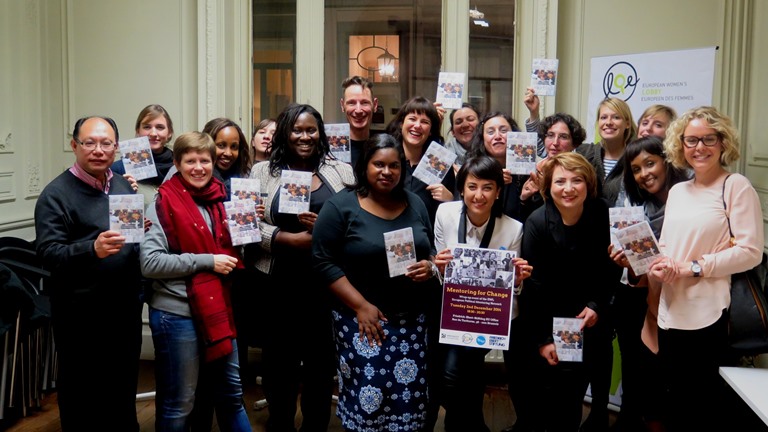[Brussels, 16 December 2011] The Political Groups in the European Parliament, with the exception of the socialists, have this week reappointed their leaders for another two and a half years. Although the EWL in September wrote to all the Groups calling for more attention to be paid to gender balance in the highest political leadership positions, the maintenance of the status quo thus far leaves only one woman co-chair of a Group, with 5.5% of the voting weight in the highest political body of the European Parliament, the Conference of Presidents. The EWL has called on the Socialists and Democrats, who will most likely provide from among their ranks the next President of the Parliament in elections to be held in January, to consider putting forward a female candidate. To date, there have only ever been two women Presidents of the assembly. As Martin Schultz, current leader of the S&D, is the leading candidate for the presidency, the EWL supports consideration of female candidates to replace him as Group leader.
- For more information on the EWL position, see the EWL article of 02 September 2011: ‘EWL writes to Heads of Political Groups in the EP urging nominations of more women for top posts in January 2012’
- For more information on the appointements of the new leaders of the Political Groups, see article by Martin Banks published on TheParliament.com on 14 December 2011: ‘Joseph Daul re-elected leader of EPP group’, reproduced below.
Joseph Daul re-elected leader of EPP group
By Martin Banks – 14th December 2011
” If the ‘package’ holds, the main groups want to maintain the status quo”
ALDE source
The leaders of parliament’s main political groups have been reappointed for another two and a half years.
The EPP, the biggest group, re-elected French deputy Joseph Daul by a majority of 220 votes to 12 against.
The Greens/EFA group, parliament’s fourth biggest, re-elected Daniel Cohn-Bendit and Rebecca Harms as its leaders for the second term of the current mandate.
There were no other candidates for both jobs.
ALDE leader Guy Verhofstadt will not face re-election as it was already agreed that he would serve the full five-year term unless the position was contested.
Each will remain in post now until the European elections in the summer of 2014.
Assuming that German deputy Martin Schulz is elected president of parliament on 17 January, this leaves only the S&D group to decide its new leader.
There are three candidates to replace him: UK deputy Stephen Hughes, French MEP Catherine Trautmann and Hannes Swoboda, from Austria and the current frontrunner.
The S&D election will take place on 18 January, the day after MEPs vote for parliament’s new president to succeed Jerzy Buzek, a Polish member.
If Schulz becomes president, under the current rules his group is set to lose two of its five vice presidencies.
An ALDE source said there is a general assumption that a “package” informally agreed a start of the current legislature between the three biggest groups, EPP, S&D and ALDE, will hold.
The source pointed out, however, that this could be “thrown into total confusion” following the decision by ALDE deputy Diana Wallis to stand for the presidency.
The decision by Wallis, who is standing as an independent, is said to have incensed Verhoftstadt because it could complicate the “pact” he has with leaders of the EPP and S&D.
Also up for election next month will be the chairmen and women of all parliaments committees.
One likely change will see ALDE German member Jorgo Chatzimarkasis replacing his Dutch party colleague Jan Mulder as chairman of the budgetary control committee.
The ALDE source said, “If the ‘package’ holds, the main groups want to maintain the status quo, meaning there will be no changes to any of the committee chairs.
Negotiations between the three groups were continuing during this week’s Strasbourg plenary with the aim being to conclude an agreement before the Christmas break.


